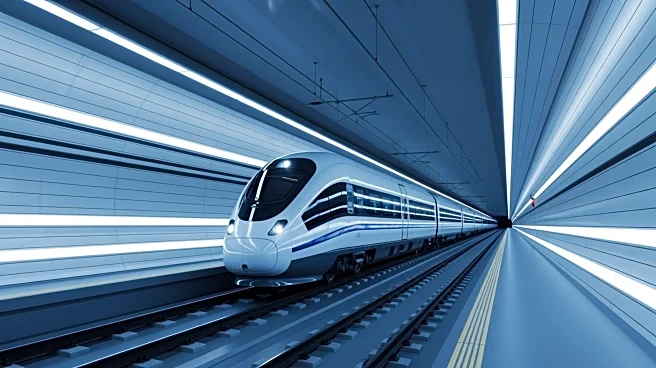What's Happening?
The European Commission has announced an ambitious plan to significantly reduce travel times on high-speed rail across Europe. The initiative aims to cut journey durations by half, with routes like Berlin
to Copenhagen expected to take four hours by 2030. The plan is part of the EU's broader strategy to achieve carbon neutrality by 2050 and enhance Europe's global competitiveness. It includes investment in infrastructure, harmonization of rail networks, and legislative measures to support the rail sector.
Why It's Important?
This development is crucial for the EU's environmental and economic goals, as it promotes sustainable transport and strengthens cross-border connectivity. The plan is expected to ease congestion, increase rail capacity, and improve regional services, benefiting both passengers and freight transport. By fostering a competitive rail market, the EU aims to attract private investment and enhance the overall efficiency of its transport network, contributing to a more integrated and resilient European economy.
What's Next?
The EU will focus on removing cross-border bottlenecks and setting binding timelines for infrastructure projects by 2027. A dedicated financing strategy will be developed to coordinate funding and attract investment. The plan also includes proposals for improving ticketing systems and reducing entry barriers for new operators. These efforts will culminate in a High-Speed Rail Deal, mobilizing resources for priority projects and ensuring the completion of the trans-European transport network by 2040.








